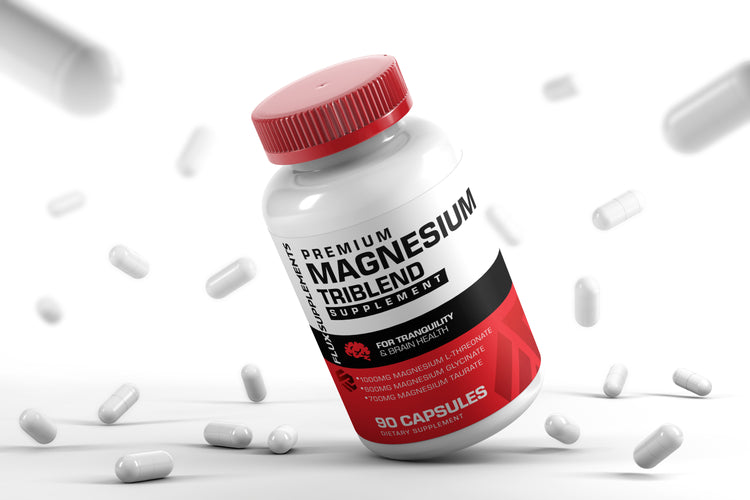Did you know that magnesium is a cofactor in more than 300 enzyme systems that regulate diverse biochemical reactions in the body?
To say at the least, magnesium is a super mineral. It's important when it comes to your health and wellbeing.
Magnesium is an essential mineral that plays a crucial role in many bodily functions, including muscle function, protein synthesis, and the production of energy. It is also involved in the regulation of blood pressure and the metabolism of calcium and potassium. Despite its importance, many people do not get enough magnesium in their diet, which can lead to deficiencies and related health problems. Supplementing with magnesium can help to address these deficiencies and support overall health and well-being.
One of the main reasons people may not get enough magnesium is because it is found in a wide variety of foods, including nuts, seeds, legumes, and leafy green vegetables. However, these foods are not always a part of the standard Western diet, which tends to be high in processed and refined foods that are low in nutrients. Additionally, certain factors, such as stress, alcohol consumption, and certain medications, can increase the body's need for magnesium or interfere with its absorption.
Symptoms of magnesium deficiency can vary and may include muscle weakness, fatigue, irritability, and sleep disorders. In severe cases, magnesium deficiency can lead to more serious health problems, such as osteoporosis, high blood pressure, and diabetes. It is important to note that while these symptoms can be caused by other factors, it is always worth considering whether a magnesium deficiency may be a contributing factor.
There are several ways to increase your magnesium intake, including adding magnesium-rich foods to your diet and taking supplements like our Magnesium Triblend.
Magnesium supplements come in a variety of forms, including pills, capsules, and powders, and can be taken orally or applied topically. The type of supplement you choose will depend on your specific needs and preferences.
As always, it is important to speak with a healthcare provider before starting any new supplement regimen, as magnesium can interact with certain medications and may not be appropriate for everyone. Your healthcare provider can help you determine the right dosage for your needs and monitor your progress.
In addition to taking supplements, there are other ways to increase your magnesium intake. For example, Epsom salt baths and magnesium oil sprays can be used topically to boost magnesium levels in the body. It is also possible to increase your magnesium intake by adding magnesium-rich foods to your diet.
There are a few things to keep in mind when it comes to supplementing with magnesium. It is important to follow the recommended dosage and not exceed the upper limit. It is also important to choose a high-quality supplement from a reputable manufacturer to ensure safety and effectiveness.
In conclusion, magnesium is an essential mineral that plays a vital role in many bodily functions. A deficiency in magnesium can lead to a variety of health problems, and supplementing with magnesium can help to address these deficiencies and support overall health and well-being. However, it is important to speak with a healthcare provider before starting any new supplement regimen and to follow the recommended dosage. By including magnesium-rich foods in your diet and choosing a high-quality supplement, you can support your body's need for this essential nutrient and improve your overall health and well-being.
Stay Healthy My Friends,
Flux Supplements



